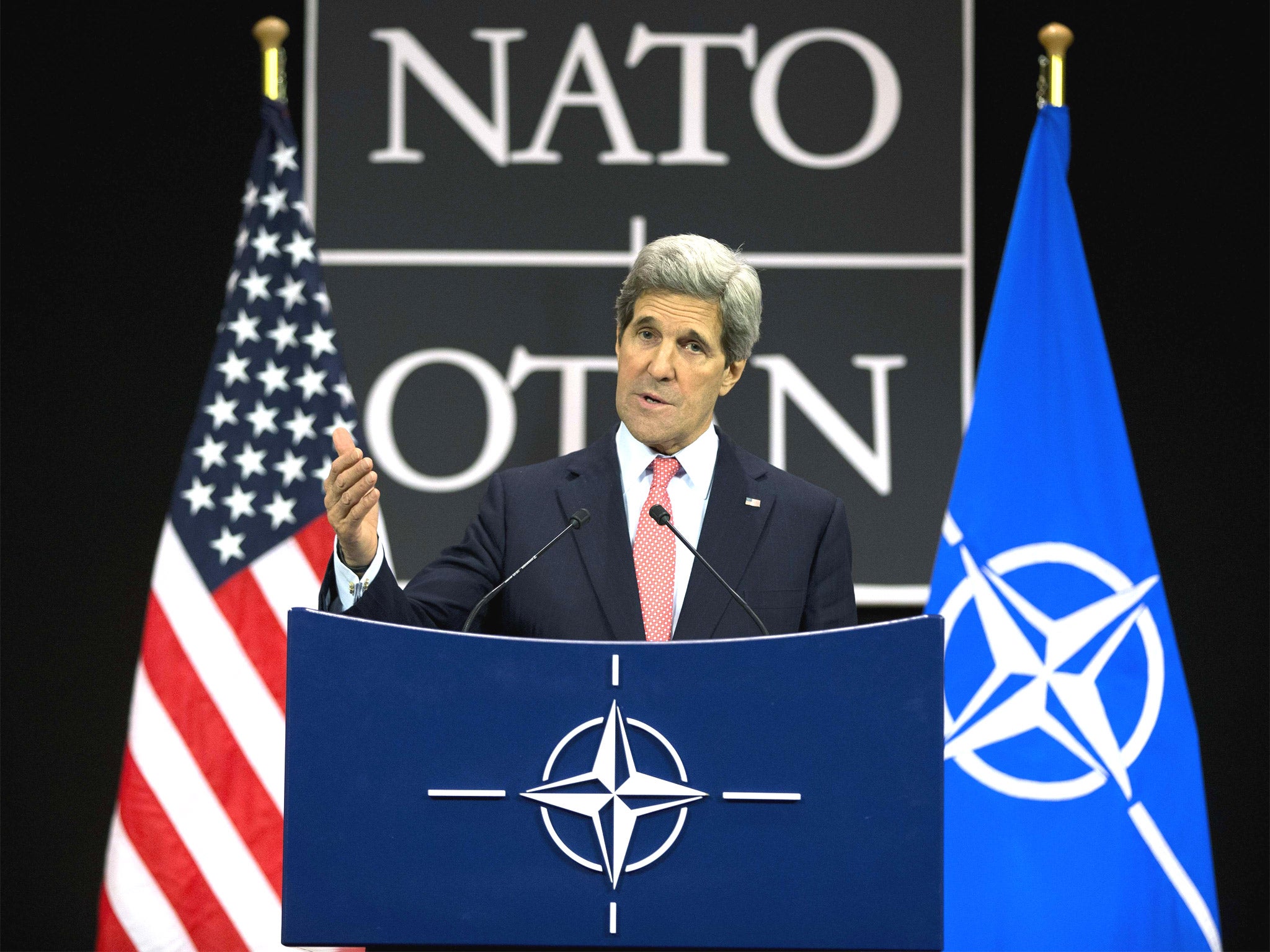John Kerry warns Nato to plan for possible Syrian chemical attack by Bashar al-Assad's forces
Reports of Sarin being used during an operation outside Damascus on 19 March came from Israel

The United States Secretary of State has warned that preparations must be made for the threat posed by chemical weapons in Syria’s civil war amid claims that President Bashar al-Assad’s forces has already carried out attacks using Sarin nerve gas.
Appearing at his first Nato conference in Brussels, John Kerry asked the Alliance to put contingency plans in place to tackle the spread of chemical contagion. US President Barack Obama had warned that the use of such weapons of mass destruction by the regime would be crossing a ‘red line’.
The reports of Sarin being used during an operation outside Damascus on 19 March came from Israel, with the chief of research for military intelligence, Brigadier-General Itai Brun, saying that photographs of victims with foam coming out of their mouths and contracting pupils indicated the use of the gas. He claimed: “There’s a huge arsenal of chemical weapons in Syria. Our assessment is that the regime has used and is using chemical weapons.”
Mr Kerry said he had telephoned the Israeli Prime Minister, Benjamin Netanyahu, about the report. "I talked to Prime Minister Netanyahu this morning. I think it is fair for me to say that he was not in a position to confirm that in the conversation that I had. I don't know yet what the facts are,” he said.
Earlier Mr Kerry told Nato foreign ministers: “Planning regarding Syria is an appropriate undertaking for the alliance. We should also carefully and collectively consider how Nato is prepared to respond to protect its members from a threat, including any potential chemical weapons threat.”
The British and French governments sent a letter to the UN Secretary-General, Ban Ki-moon, last week claiming there was evidence that the regime had used chemical weapons this year in Homs, Aleppo and Damascus.
Anders Fogh Rasmussen, the Nato Secretary-General, said: “The situation is Syria has dramatically deteriorated and continues to pose a threat to regional stability. We are extremely concerned about the use of ballistic missiles in Syria and the possible use of chemical weapons. There is no call for Nato to play a role, but if these challenges remain unaddressed they could directly affect our own security. So we will continue to remain extremely vigilant."
However, repeated warnings about the disintegrating situation in Syria posing the most immediate and widespread danger to the international community, was accompanied, it is said, by growing belief among some of the member states that a negotiated settlement was urgently needed to prevent further damage to neighbouring countries already being destabilised by the strife across their border.
Mr Rasmussen said he had found support, in particular, for talks to be based on the Geneva Agreement signed last year by a number of counties including the US and Russia.
Russia’s foreign minister raised the proposals, which calls for talks leading to an interim government prior to elections, in bilateral talks with Mr Kerry during the conference in Brussels.
The main source of disagreement had been over the West’s insistence that no political process can progress without Assad’s departure and the Kremlin saying there could be no such pre-condition.
Mr Kerry maintained yesterday that Washington and Moscow are not that far apart on the Geneva Agreement with both countries acknowledging that President Assad will have to go and suggesting that timing of that was the issue; “but everyone’s first choice is a political solution.”
However, Mr Kerry also announced that the US will double the amount of ‘non-lethal’ aid it was giving to the opposition, while Britain and France are pressing for European Union sanctions on Syria, which have already been changed once, should be further relaxed so that weapons can be sent to the rebels.
Russia has protested that sending materials to the rebels, who include powerful Islamist groups, will prolong the conflict.
Join our commenting forum
Join thought-provoking conversations, follow other Independent readers and see their replies
Comments
Bookmark popover
Removed from bookmarks